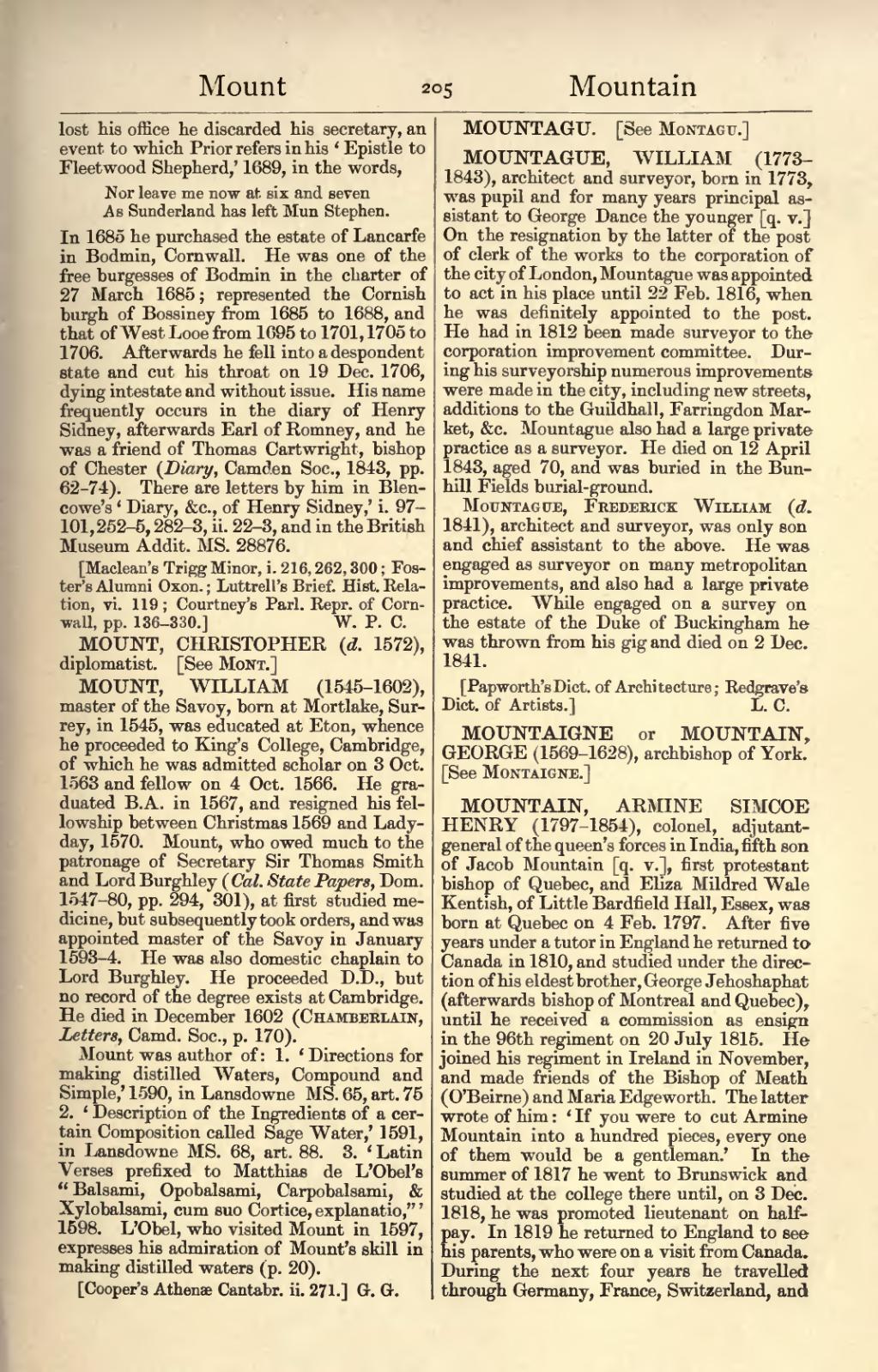lost his office he discarded his secretary, an event to which Prior refers in his 'Epistle to Fleetwood Shepherd,' 1689, in the words,
Nor leave me now at. six and seven
As Sunderland has left Mun Stephen.
In 1685 he purchased the estate of Lancarfe in Bodmin, Cornwall. He was one of the free burgesses of Bodmin in the charter of 27 March 1685; represented the Cornish burgh of Bossiney from 1685 to 1688, and that of West Looe from 1695 to 1701, 1705 to 1706. Afterwards he fell into a despondent state and cut his throat on 19 Dec. 1706, dying intestate and without issue. His name frequently occurs in the diary of Henry Sidney, afterwards Earl of Romney, and he was a friend of Thomas Cartwright, bishop of Chester (Diary, Camden Soc., 1843, pp. 62-74). There are letters by him in Blencowe's ' Diary, &c., of Henry Sidney,' i. 97-101, 252-5, 282-3, ii. 22-3, and in the British Museum Addit. MS. 28876.
[Maclean's Trigg Minor, i. 216, 262, 300; Foster's Alumni Oxon.; Luttrell's Brief. Hist. Relation, vi. 119; Courtney's Parl. Repr. of Cornwall, pp. 136-330.]
MOUNT, CHRISTOPHER (d. 1572), diplomatist. [See Mont.]
MOUNT, WILLIAM (1545–1602), master of the Savoy, born at Mortlake, Surrey, in 1545, was educated at Eton, whence he proceeded to King's College, Cambridge, of which he was admitted scholar on 3 Oct. 1563 and fellow on 4 Oct. 1566. He graduated B.A. in 1567, and resigned his fellowship between Christmas 1569 and Lady-day, 1570. Mount, who owed much to the patronage of Secretary Sir Thomas Smith and Lord Burghley (Cal. State Papers, Dom. 1547-80, pp. 294, 301), at first studied medicine, but subsequently took orders, and was appointed master of the Savoy in January 1593-4. He was also domestic chaplain to Lord Burghley. He proceeded D.D., but no record of the degree exists at Cambridge. He died in December 1602 (Chamberlain, Letters, Camd. Soc., p. 170).
Mount was author of:
- 'Directions for making distilled Waters, Compound and Simple,' 1590, in Lansdowne MS. 65, art. 75
- 'Description of the Ingredients of a certain Composition called Sage Water,' 1591, in Lansdowne MS. 68, art. 88.
- 'Latin Verses prefixed to Matthias de L'Obel's "Balsami, Opobalsami, Carpobalsami, & Xylobalsami, cum suo Cortice, explanatio," ' 1598. L'Obel, who visited Mount in 1597, expresses his admiration of Mount's skill in making distilled waters (p. 20).
[Cooper's Athenæ Cantabr. ii. 271.]
MOUNTAGU. [See Montagu.]
MOUNTAGUE, WILLIAM (1773–1843), architect and surveyor, born in 1773, was pupil and for many years principal assistant to George Dance the younger [q. v.] On the resignation by the latter of the post of clerk of the works to the corporation of the city of London, Mountague was appointed to act in his place until 22 Feb. 1816, when he was definitely appointed to the post. He had in 1812 been made surveyor to the corporation improvement committee. During his surveyorship numerous improvements were made in the city, including new streets, additions to the Guildhall, Farringdon Market, &c. Mountague also had a large private practice as a surveyor. He died on 12 April 1843, aged 70, and was buried in the Bunhill Fields burial-ground.
Mountague, Frederick William (d. 1841), architect and surveyor, was only son and chief assistant to the above. He was engaged as surveyor on many metropolitan improvements, and also had a large private practice. While engaged on a survey on the estate of the Duke of Buckingham he was thrown from his gig and died on 2 Dec. 1841.
[Papworth's Dict. of Architecture; Redgrave's Dict. of Artists.]
MOUNTAIGNE or MOUNTAIN, GEORGE (1569–1628), archbishop of York. [See Montaigne.]
MOUNTAIN, ARMINE SIMCOE HENRY (1797–1854), colonel, adjutant-general of the queen's forces in India, fifth son of Jacob Mountain [q. v.], first protestant bishop of Quebec, and Eliza Mildred Wale Kentish, of Little Bardfield Hall, Essex, was born at Quebec on 4 Feb. 1797. After five years under a tutor in England he returned to Canada in 1810, and studied under the direction of his eldest brother, George Jehoshaphat (afterwards bishop of Montreal and Quebec), until he received a commission as ensign in the 96th regiment on 20 July 1815. He joined his regiment in Ireland in November, and made friends of the Bishop of Meath (O'Beirne) and Maria Edgeworth. The latter wrote of him: 'If you were to cut Armine Mountain into a hundred pieces, every one of them would be a gentleman.' In the summer of 1817 he went to Brunswick and studied at the college there until, on 3 Dec. 1818, he was promoted lieutenant on half-pay. In 1819 he returned to England to see his parents, who were on a visit from Canada. During the next four years he travelled through Germany, France, Switzerland, and
